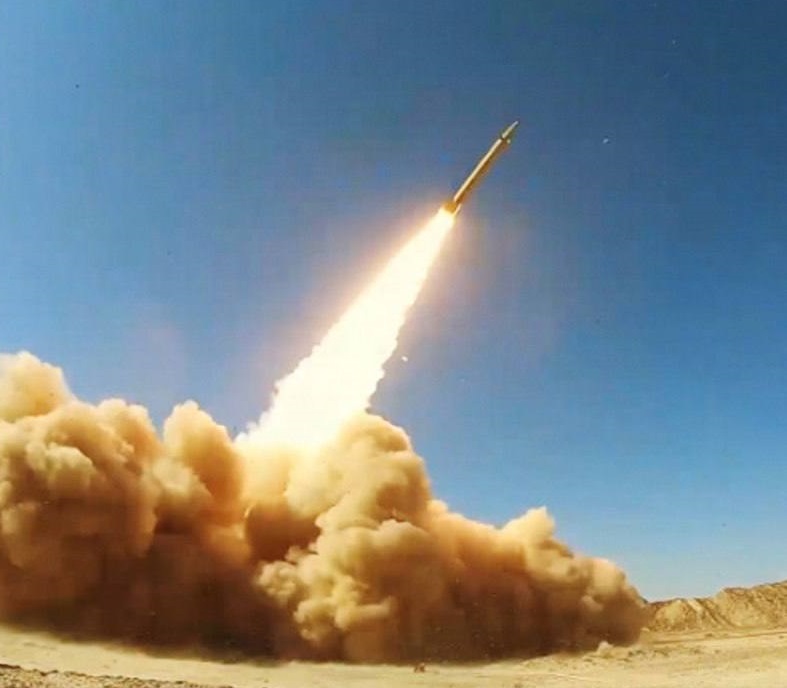Belucistan, the Crossroads of tensions and business at heart of standoff between Iran and Pakistan
Islamabad responded to the Iranian attacks two days ago by drawing attention to a region divided between Iran, Pakistan and Afghanistan, the base of several independence groups. It hosts Salafist groups, but the Beluchis have also been victims of Tehran's repression after the death of Mahsa Amini. China, which has extensive economic interests in the region, has proposed itself as a mediator. For analysts, neither country wants to show weakness today.
Islamabad (AsiaNews/Agencies) - Pakistan responded to the Iranian attack launched on the evening of January 16, the day on which Iran launched air strikes in the southwestern province of Balochistan, raising fears of an expansion of the conflict in the Middle East , where pro-Iranian groups are directly involved. At least seven people died, Iranian media reported. China, Pakistan's ally, which has economic interests in the Balochistan region where the clash occurred, immediately proposed itself as a mediator to lower tension.
In recent days, the Iranian Revolutionary Guards have bombed areas near Idlib in northeast Syria, then Erbil, the capital of Iraqi Kurdistan, and finally Balochistan in less than 24 hours. In all these cases the targets for which Iran declared it had launched the attacks were not hit; on the contrary, civilians died: in Pakistan the Iranian missiles, which aimed at the Jaish al-Adl (a terrorist group close to al-Qaeda), killed two children, as was communicated yesterday by the Pakistani authorities before withdrawing the own ambassador from Iran and expel the Iranian one in Pakistan.
In Erbil - contrary to what Iranian officials claim - an "Israeli Mossad espionage headquarters" has never existed, while the building hit in Syria - according to Tehran a hideout of ISIS terrorists responsible for the attack on Kerman in which 84 pilgrims died on December 15 - had been empty since 2017, local sources revealed.
While Iranian media claimed to have destroyed facilities where fighters from the Islamic State of Khorasan Province (ISPK) trained, experts recalled that the group has no bases in Syria, but is if anything active in neighboring Afghanistan, a target too ambitious even for Iran, which has no intention of antagonizing the Taliban.
The launch of rockets towards Pakistan may have initially taken the experts by surprise, even more so given that in recent days the inauguration of the Iranian export fair to Pakistan had taken place in the Iranian city of Chabahar and the the border between the two countries was defined on that occasion by the Tehran government as a "border of friendship and peace".
However, the Iranian attack fits into the same logic as the previous ones: Tehran wants to demonstrate that it is able to avenge the attacks suffered on its territory, after in December the Jaish al-Adl group had claimed responsibility for an attack on an Iranian police station killing 11 agents. On that occasion, the Iranian Interior Minister, Ahmad Vahidi, had issued a warning asking Pakistan to intervene to stop the group's attacks.
Similarly, Pakistan, a nuclear power surrounded by neighbors it deems hostile (India and Afghanistan) probably responded to the Iranian attack so as not to appear weak in the eyes of other countries in the region, some analysts believe.
The Baluchistan region extends between Iran, Pakistan and Afghanistan and is home to several terrorist groups that over the years have taken the place of the Baloch ethnic groups that were fighting for the region's independence.
The Jaish al-Adl (Justice Army) emerged in 2012 from the ashes of another Sunni group of Salafist tradition, the Jundallah, also known as the Iranian Popular Resistance Movement. Following the death of Mahsa Amini in 2022, unrest and protests also increased in the Iranian province of Sistan and Baluchistan, provoking the harsh repression of the Tehran regime against the Baloch minority.
But Pakistan's security forces have also been subjected to attacks by the Balochistan Liberation Army (BLA, the best-known group together with the Balochistan Liberation Front, BLF) for decades and in recent weeks - while the country is trying with great difficulty to approaching the elections of 8 February - there had been several protests by the local population against the violent and repressive methods used by the Pakistani army to quell the insurgency. Earlier this month, 400 protesters (half of them women and children) braved the cold to camp outside the National Press Club in Islamabad to protest against extrajudicial killings and enforced disappearances of people accused of being part of terrorist organizations.
Beijing - which has various interests in the region, rich in mineral resources, and has in the past suffered attacks by Pakistan's Baloch independence activists who oppose Chinese investments - immediately proposed itself as a mediator: "China sincerely hopes that the two sides can demonstrate calm and moderation and avoid an escalation of tension", the Foreign Ministery spokesperson, Mao Ning, said today at a press conference.
The tribal leaders of Balochistan have always opposed the Gwadar port project, considered by Beijing to be the flagship of the Belt and Road Initiative because it connects the economic corridor starting from Xinjiang, in north-west China, and the coast of Pakistani Balochistan on the Arabian Sea. The local population, however, does not see a sufficient economic return from the project and on the contrary, believes that China, together with the Pakistani government, are robbing the region of precious resources for the livelihood of the Baloch.
12/02/2016 15:14







.png)










